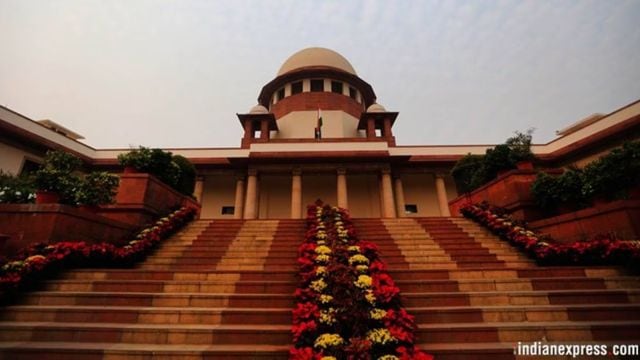Prepare will to avoid litigation, SC urges women without children, husband
The court was hearing a PIL by a lawyer who challenged Section 15(1) of the Act, which prescribes what happens to the property of a Hindu woman who dies intestate.
 The Supreme Court Wednesday appealed to all governed by the Act to keep their will ready so that future disputes can be avoided.
The Supreme Court Wednesday appealed to all governed by the Act to keep their will ready so that future disputes can be avoided.REFUSING TO go into the merits of a petition challenging the Hindu Succession Act, 1956 provision, which says that property of a woman who dies intestate and without children or husband, would first go to the heirs of her husband, the Supreme Court Wednesday appealed to all governed by the Act to keep their will ready so that future disputes can be avoided.
“We appeal to all women and particularly all Hindu women irrespective of their age who are likely to be in position of Section 15(1) of the Hindu Succession Act, 1956 to take immediate steps to make a testament or will bequeathing their properties including their self-acquired properties in accordance with section 30 of the Hindu Succession Act read with the provisions of the Indian Succession Act,” a bench of Justices B V Nagarathna and R Mahadevan said. The court said it was saying so “in order to safeguard the interest of not only women in this country in general but female Hindus in particular so as to avoid any further litigation”.
The court was hearing a PIL by a lawyer who challenged Section 15(1) of the Act, which prescribes what happens to the property of a Hindu woman who dies intestate. It says that such property would devolve (a) firstly, upon the sons and daughters (including the children of any pre-deceased son or daughter) and the husband; (b) secondly, upon the heirs of the husband; (c) thirdly, upon the mother and father; (d) fourthly, upon the heirs of the father; and (e) lastly, upon the heirs of the mother.
The plea said the Act failed to consider that property may include self acquired property and urged the court to strike down clause b or the order be tweaked and the woman’s parents be given priority.
Appearing for the Centre, Additional Solicitor General KM Nataraj said that it may be adjudicated when someone who is affected approaches the court and not in a PIL. He pointed out that female Hindus can under the law make a will including for her self-acquired property.
The bench agreed that it needs to go into the question of validity of the provision when an aggrieved party approaches and not on a PIL. It added that where a Hindu woman dies intestate and a claim is made on her property, the parties must undergo pre litigation mediation.
“If a claim is made by the parents or heirs of the parents of a female Hindu dying intestate as stated in section 15(1)(c), (d) and (e) make a claim to the estate of a Hindu female dying intestate and section 15(2) does not apply, then in such a case we direct the parties to go in for mediation in the first instance. We direct that there should be a pre litigation mediation prior to filling of any suit or proceeding in a court of law,” it said.







- 01
- 02
- 03
- 04
- 05
























